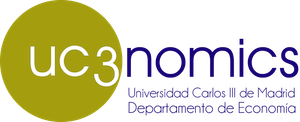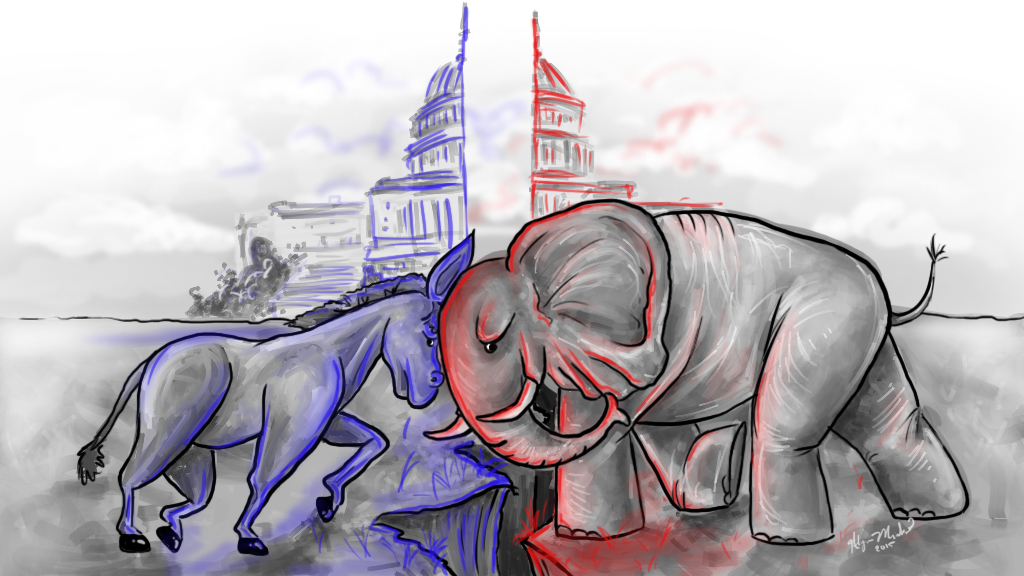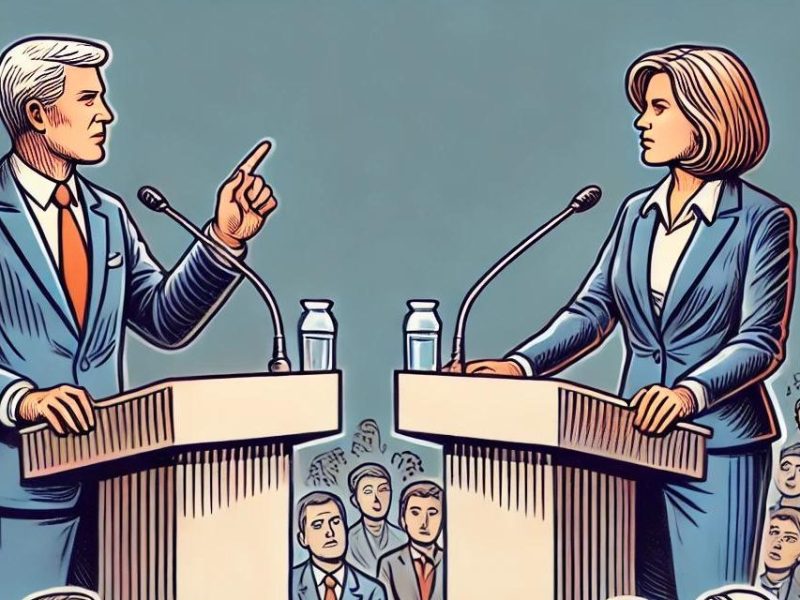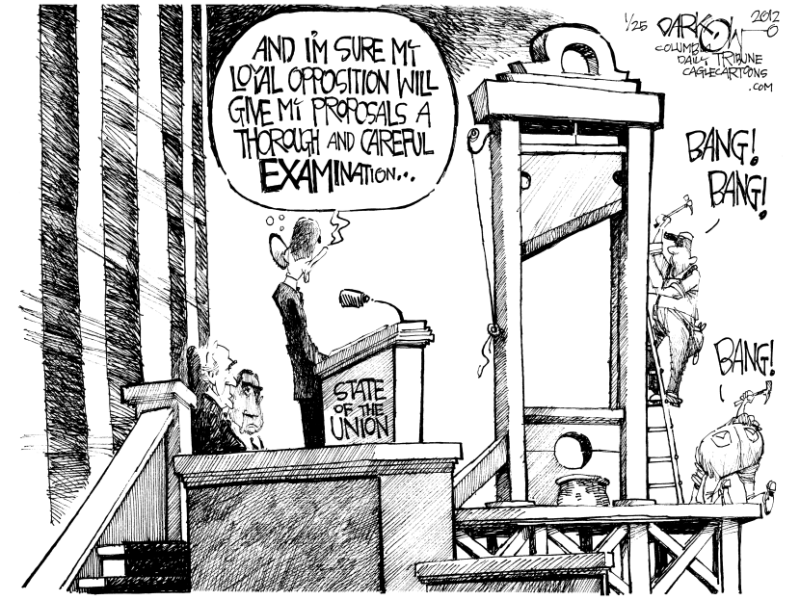Can pluralistic democracies raise to the challenge of a volatile and uncertain world, or are they doomed to gridlock and inaction?
Based on research by Wioletta Dziuda and Antoine Loeper.
As the Greek philosopher Heraclitus famously said, one can never step into the same river twice. As time passes, economic booms turn into contractions, demographic trends evolve, new environmental risks emerge. A continuously changing world has important implications for policy-makers: policies that are optimal given today’s circumstances need not be a good fit for tomorrow’s environment. The need for timely policy responses to shocks poses a great challenge to modern democracies, in which policy decisions are not taken by a single, unchecked sovereign, but are instead the outcome of a complex bargaining process between political actors with different ideologies, objectives, and beliefs. In the aftermath of a shock, when do politicians decide to put their ideological differences aside and implement an adequate policy response? When do they let instead outdated policies linger? The importance of these questions has recently been illustrated by how governments have reacted (or failed to react) to the 2008 financial crisis, the 2011 European fiscal crisis, global warming, or the rising cost of pensions due to population aging.
Our research (Dziuda and Loeper 2016, 2018) uses dynamic game theory to model how pluralistic democratic systems react to a changing environment. The two distinctive features of our models are that the policy needs to respond to recurring shocks, but policy change requires the approval of several policy-makers with conflicting preferences. We show that the strategic frictions between these polarized policy-makers exacerbate their disagreement relative to a static environment, leading to excessive policy inertia.
The intuition for this result is best explained with a simple example. Consider a country that faces a fiscal crisis severe enough that both conservative and progressive legislators agree that a tax increase is needed. Suppose for a moment that conservatives leave aside their typical partisan preference for low taxes and do not veto the tax increase. Once the fiscal crisis is over, ideological differences resurface: the conservatives want to lower the tax rate back to the pre-crisis level, but the progressives prefer to keep taxes high in order to finance social welfare programs. If lowering taxes requires the approval of both conservatives and progressive legislators, the latter can veto any change and keep taxes high. The expectation by the conservatives of this unfavorable bargaining position leads them to veto the tax increase in the first place, when the country is in the midst of a fiscal crisis. The logic of this example explains why the expectation of future disagreement exacerbates policy makers’ disagreement today, and prevents the implementation of mutually beneficial policy change.
These negative results suggest that democratic systems in which many political actors hold a veto power (e.g., because of bicameralism, presidential veto, supermajority rules, or divided governments) cannot adapt their policies to a changing world, and are thus dominated by political systems in which policy-making power is more concentrated. As intuitive as it is, this finding is nevertheless hard to reconcile with the empirical observation that voters often prefer to elect governments in which power is shared between parties with different ideologies. For instance, out of the 38 U.S. federal elections since World War II, the voters gave only 13 times undivided control of the lawmaking institutions (the House of Representatives, the Senate, and the Presidency) to the same party. In the remaining 25 elections, they granted a de facto veto power to the leaders of the Republican and the Democrat party. Several rationales have been advanced to explain this pattern. In particular, many pundits and scholars have argued that the need for bipartisan support forces divided governments to implement more moderate policies, which benefit the voters (see, e.g., Alesina and Rosenthal 1996). Our aforementioned research suggests instead that disagreement between parties in a divided government leads to gridlock rather than moderation.
In another paper (Dziuda and Loeper 2022), we propose a novel approach to understanding voters’ preference for power-sharing. Our starting point is that in a rapidly changing world, policy makers have to decide not only whether to implement a given reform, but also which reform to prioritize. One might wonder why some reforms have to be prioritized over others. The need for prioritization comes from the simple observation that passing a major reform takes time. Although well documented by political scholars, the scarcity of legislative time has been largely overlooked by the political economy literature. As Cox (2006) puts it, “[T]he management of plenary time has been the crucial battleground of most of the biggest fights over legislative procedure across the democratic world. […] All bills must go through the plenary bottleneck in order to be enacted but only a subset can do so”. This observation raises a number of novel questions: when do politicians prioritize the most pressing/important reforms? Can voters influence the legislative priorities of the government?
To shed some light on these questions, Dziuda and Loeper 2022 extends Dziuda and Loeper 2016 to a bidimensional policy space, where one policy dimension (the ideological dimension, e.g., tax policy) generates more disagreement than the other dimension (the consensual dimension, e.g., infrastructure spending). In every period, both policy dimensions are subject to shocks, but the government can only reform at most one policy dimension at a time. Because of this legislative constraint, in every period, the government has to choose whether to prioritize an ideological or a consensual reform. The government is elected in every period by the voters. They can appoint a unified or a divided government. Formally, they can give the agenda power (which reform should be prioritized?) and veto power (should the proposed reform be implemented?) to the same party, or to different parties, respectively. The analysis shows that a divided government is more likely to lead to gridlock, in line with our previous research, but voters prefer nevertheless electing a divided government because it is more likely to prioritize their preferred reform. The basic intuition for the latter result is that voters fear that a unified government will waste its legislative time on a reform in line with its own ideology (e.g., implementing/repealing a healthcare reform for a progressive/conservative government), and this bias may crowd out potentially beneficial consensual reforms. A divided government also has its own bias: it is often unable to pass an ideologically-charged reform because of internal disagreement, even when such a reform is more pressing for the voters. But its inability to pass controversial reforms frees up legislative time for consensual reform, instead of crowding them out as in the case of a unified government. Thus, taking the scarcity of legislative time into account helps us get a richer picture of the pros and cons of divided governments, and of checks and balances more generally.
Further Reading:
Dziuda, W., & Loeper, A. (2016). Dynamic collective choice with endogenous status quo. Journal of Political Economy, 124(4), 1148-1186.
Dziuda, W., & Loeper, A. (2018). Dynamic pivotal politics. American Political Science Review, 112(3), 580-601.
Dziuda, W., & Loeper, A. (2022). Legislative priorities and the structure of government. Unpublished manuscript.
About the authors:
Wiola Dziuda is Associate Professor of Economics at the Harris School of Public Policy, University of Chicago. Her research interests are in political economy, especially on legislative bargaining and political scandals.
https://sites.google.com/site/dziudawiola/home
Antoine Loeper is Associate Professor at the Universidad Carlos III de Madrid. His research focuses on political economy, with a particular emphasis on legislative bargaining.
https://sites.google.com/view/antoineloeper/
References:
Alesina, A., & Rosenthal, H. (1996). A theory of divided government. Econometrica: journal of the Econometric Society, 1311-1341.
Cox, G. W. (2006). The organization of democratic legislatures. The Oxford handbook of political economy, 141-61.



